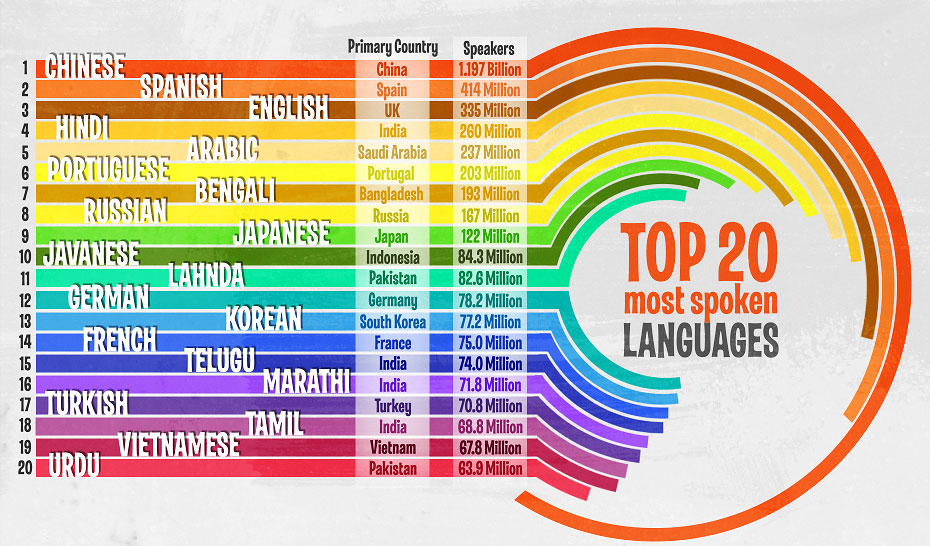Today, a total of 7,106 languages are spoken around the world. At Leesville, students have the opportunity to learn three of them. The two credits in either Latin, French, or Spanish are a controversial part of our high school careers. Many feel learning a second language is important for brain development, study habits, exposure to other cultures, and the future. Others believe the learning of foreign languages is important only for students with certain future plans.
Isabelle Gold, who has been taking Spanish classes since elementary school, believes students should only take classes that will benefit them in the future. “I don’t think it should be required, but I think it’s important,” she said. “If you’re never planning on leaving the country, you could use that period, to take up a different skill.” Like many others, Gold decided to take Spanish, so she could travel and communicate with more people.
However, Gold wishes Leesville offered more globally-spoken languages — especially Chinese. “A lot of people speak Chinese,” she said, informing me that the class is offered at Millbrook High, in addition to the three we offer at Leesville.
In fact, with a staggering 1.3 billion native speakers, Chinese is the most widely spoken language in the world as of 2017. More people are estimated to speak Chinese as a first language than English, Spanish, and Arabic combined, inspiring the nickname “language of the future.” Spanish and English come in second and third place, respectively, while French and Latin reside below the top ten.
Many students use foreign language classes to keep in touch with their roots. Lyric Chassin, one such student, takes French to connect with her family background. “My family is French, my dad is fluent in French, and so is my grandpa,” said Chassin. She believes learning foreign languages is important. “You can explore more of the culture and just understand more people.” She concluded: “I think it should be required….because…. It’s a good thing to know.”
Lyric finds global communication to be an essential part of the future. While her class choice was personal, she thinks the most beneficial choice for the average Leesville student is Spanish.
In the future, Chassin hopes to see opportunities at school to learn American Sign Language (ASL). “I really would want take that,” she said. “In any situation, really, it’s hard for [deaf and hard of hearing people] to talk to people.”
Señora Elizabeth Lindsay, one of Leesville’s six Spanish teachers, feels strongly about the importance of learning a foreign language. During an email interview, Lindsay wrote, “I think that it’s important for everyone to be exposed to something different than what they know…. It is a great way to learn about people that are different than you and see that while you may have many differences there are always similarities that can be found.”
Señora Lindsay’s interest in Spanish sparked at a very young age, when her grandparents gave her a book of Spanish words. She continued to learn Spanish throughout elementary school and again in high school.
Mr. Eric Greene, Dean of Students at Leesville, dispelled a myth many students have about foreign language credits. “You don’t need to take a language to get a diploma,” he said. “But you do need two credits in the same language… to meet the minimum admission requirements for the public universities in North Carolina.” While some private colleges prefer applicants to have credits in foreign language, it oftentimes is not a requirement. Therefore, unless a student is planning to attend a public university in NC immediately after graduation, he or she does not have to take a foreign language in high school.
When asked about his opinion on taking language classes in school, Mr. Greene confessed that he’d spent lots of time thinking about this question. “I think taking a second language is a good thing because we’re in a global community, and I really think a lot of kids should learn a second language even earlier than they do now. But I also like kids having the flexibility of being able to take what they want to…. Some kids just don’t really need that for their future plans,” said Greene. “Most people at Leesville end up doing it anyway, but I wouldn’t want it to be required.”
“It’d be great if we had Chinese here,” said Mr. Greene when I asked him about the possibility of Leesville increasing their foreign language classes. “There is talk about it, but…. It’s more of a county-level, district-wide decision of where to put [languages].” He explained that a game-changing factor tends to be the languages taught at the main middle schools that feed into a high school, saying that “It’s probably out of our control here at this school, but I think it’d be great if they did it.”
In a time of rapid globalization, many find the learning of foreign languages to be an advantage in both a personal and collective future. However, the necessity and selection of language classes is an ongoing debate. Students at Leesville currently have three official options, but second-language classes will continue to change and adapt as the world does.

Hi! My name is Jannah and I am a senior editor and multimedia editor for The Mycenaean. I am also a math tutor, engineering intern, and a tennis player.

Leave a Reply